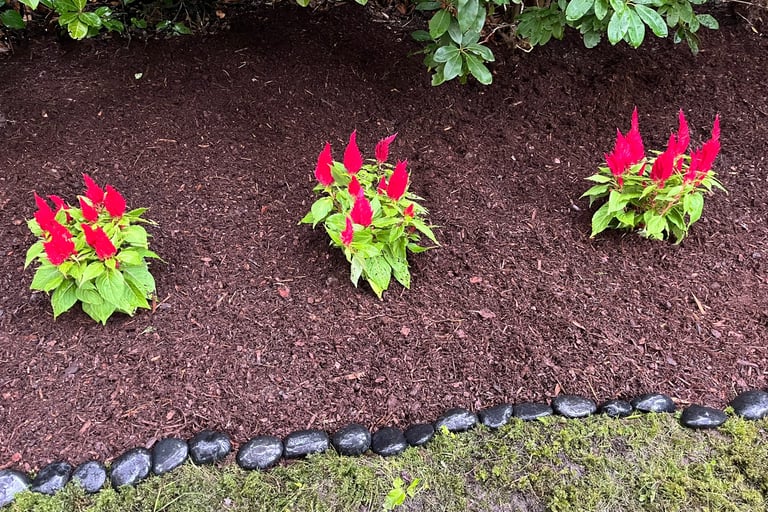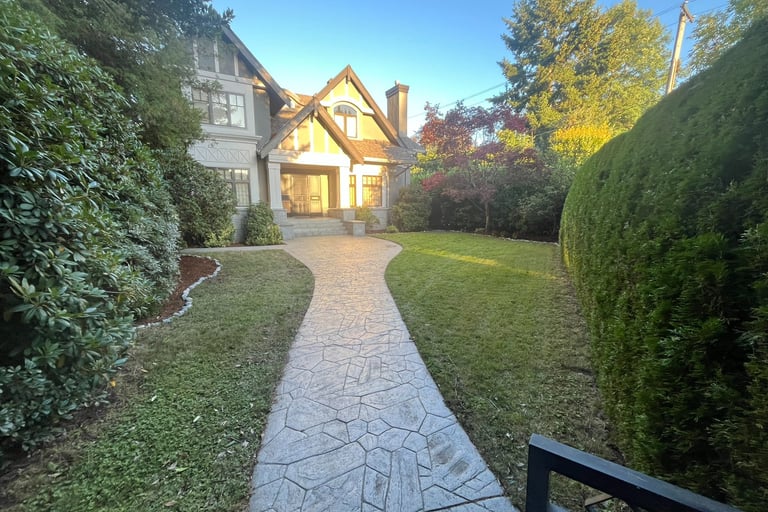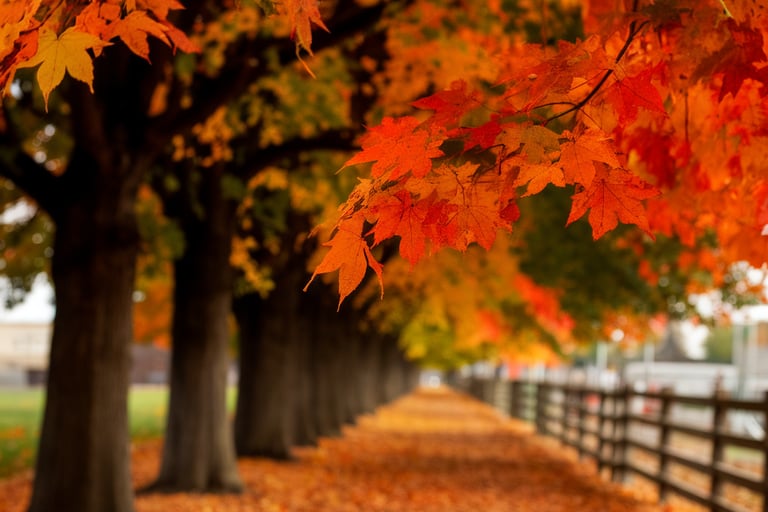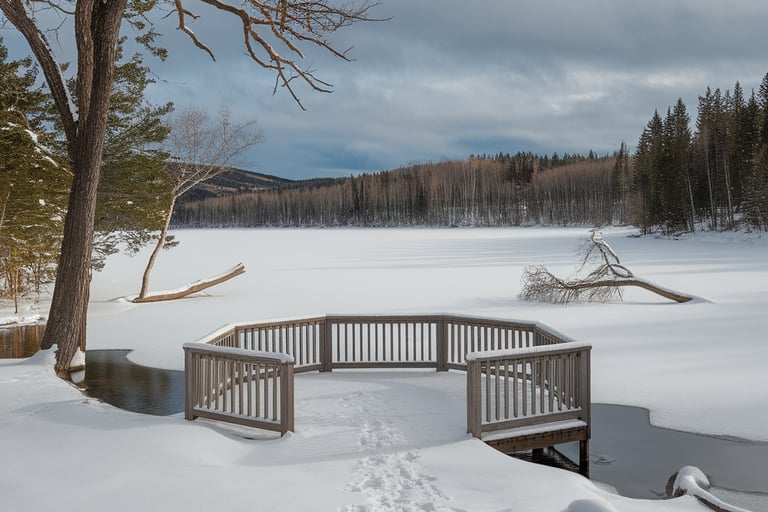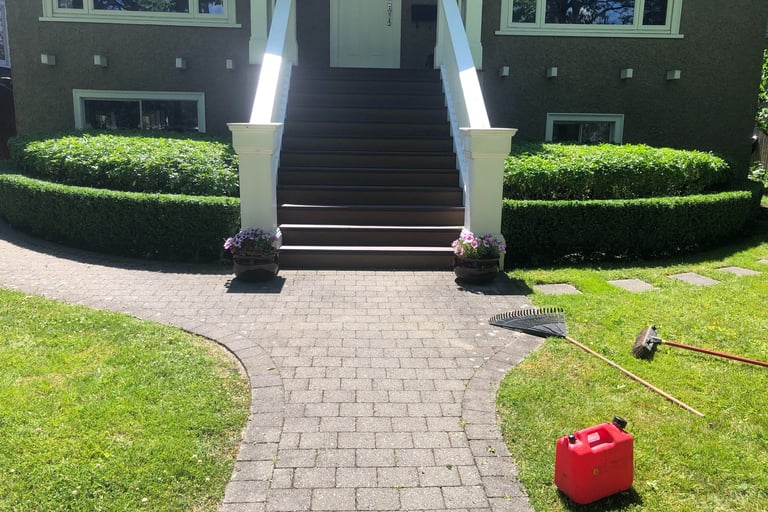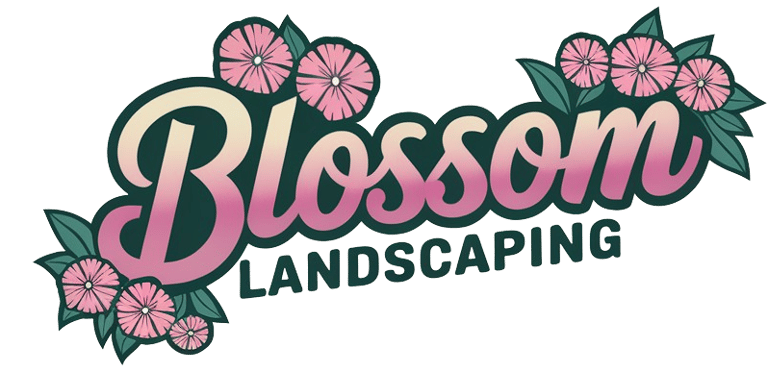
What Landscaping Should Be Done in Vancouver?
What Landscaping Should Be Done In Vancouver? A Complete Guide to Year-Round Garden Success
Vancouver's unique coastal climate and distinctive seasons create specific requirements for successful landscaping. As a homeowner in the Lower Mainland, understanding what landscaping tasks to undertake and when to perform them is crucial for maintaining a beautiful, sustainable outdoor space. This comprehensive guide will walk you through essential landscaping activities tailored specifically to Vancouver's climate and environmental conditions.
Understanding Vancouver's Climate and Its Impact on Landscaping
Vancouver's mild, oceanic climate presents both opportunities and challenges for landscaping. With average temperatures ranging from 3°C in winter to 22°C in summer, according to Environment Canada's historical data, our growing season is longer than most Canadian cities. However, our abundant rainfall (approximately 1,457mm annually) and occasional winter freezes require thoughtful planning and specific approaches to landscaping.
Early Spring Landscaping Tasks (February-March)
As Vancouver emerges from its mild winter, early spring presents the perfect opportunity to begin essential landscaping tasks. With average temperatures beginning to rise above 8°C, February and March are crucial months for preparing your garden for the growing season.
Soil Assessment and Preparation
Work organic matter into your soil once it's workable - typically by late February in Vancouver. Local suppliers like West Coast Seeds offer excellent soil amendments specifically formulated for our regional conditions. Incorporate composted materials from the City of Vancouver's Green Bin Program to improve soil structure and fertility.
Spring Cleanup and Preparation
March is the ideal time to clear winter debris and prepare beds for new plantings. Remove any damaged branches from winter storms, which are common in Vancouver's rainy season. Prune back ornamental grasses and perennials that were left for winter interest, but do so before new growth emerges.
Planning Your Garden Layout
Vancouver's unique microclimate zones require thoughtful plant placement. Consider your property's specific conditions - north-facing slopes in areas like North Vancouver require different approaches than sunny South Vancouver gardens. Consult the Vancouver Park Board's recommended plant list for species that thrive in our climate.
Late Spring Landscaping Activities (April-May)
As temperatures consistently rise above 12°C, late spring becomes the busiest season for Vancouver landscapers. This period is crucial for establishing new plants and implementing major landscape changes.
Planting Considerations
April and May present ideal conditions for installing new plants in Vancouver gardens. Focus on native species that are adapted to our climate, such as:
Western Red Cedar (Thuja plicata) for privacy screening
Salal (Gaultheria shallon) for groundcover
Pacific Dogwood (Cornus nuttallii) for spring blooms
Visit local nurseries like GardenWorks or Art's Nursery for the best selection of climate-appropriate plants. These establishments offer expert advice on plant selection specifically for Vancouver's growing conditions.
Lawn Care Fundamentals
Spring lawn care in Vancouver requires specific timing due to our unique climate. Begin regular mowing when soil has dried sufficiently - typically by mid-April. Choose grass varieties suited to our wet climate, such as perennial ryegrass or fine fescue blends, available at local suppliers like Canadian Tire.
Irrigation System Setup
While Vancouver receives abundant rainfall, proper irrigation is crucial for summer dry spells. Install water-efficient systems that comply with Metro Vancouver's water restrictions. Consider installing a rain sensor to automatically adjust watering schedules based on precipitation - particularly important given our region's varying rainfall patterns.
Summer Landscaping Maintenance (June-August)
Vancouver's summers, while mild compared to other Canadian cities, present unique challenges for landscaping. With average rainfall dropping to just 41mm in July according to Vancouver Weather Stats, careful attention to water management becomes crucial. Summer is also a great time for Landscape Transformations.
Water Management Strategies
Metro Vancouver's watering restrictions typically come into effect June 1st, with specific days and times allowed for lawn watering. Install a smart irrigation controller that complies with Metro Vancouver's Water Conservation Guidelines. These systems can reduce water consumption by up to 30% while maintaining healthy landscapes.
Consider incorporating drought-resistant plants into your landscape design. Local species like Oregon Grape (Mahonia aquifolium) and Kinnikinnick (Arctostaphylos uva-ursi) thrive in our summer conditions with minimal watering. The VanDusen Botanical Garden showcases excellent examples of water-wise gardening specific to our climate.
Managing Pests and Diseases
Summer brings increased pest activity in Vancouver gardens. Common issues include:
European Chafer Beetles: These invasive pests have become increasingly problematic in Vancouver lawns. Contact Vancouver's Integrated Pest Management Program for approved control methods.
Powdery Mildew: Our combination of warm days and cool nights creates perfect conditions for this fungal disease. Ensure proper air circulation around plants and consider resistant varieties available at Phoenix Perennials in Richmond.
Summer Pruning Considerations
Timing is crucial for summer pruning in Vancouver's climate. Prune spring-flowering shrubs like rhododendrons and azaleas immediately after blooming. For hedges, schedule the final trim no later than mid-August to prevent encouraging tender new growth before winter.
Fall Landscape Preparation (September-November)
Fall in Vancouver brings increasing rainfall and cooling temperatures, making it an ideal time for many landscaping activities.
Soil Amendment and Mulching
Our wet climate makes fall the perfect time to improve soil structure. Apply a layer of mulch before the heavy rains begin, typically by early October. Source local materials from Fraser Valley Bark & Mulch or similar suppliers who understand Vancouver's specific needs.
Plant bulbs for spring display during September and October. Choose varieties that perform well in our wet winters, such as daffodils and alliums. Local garden centers like David Hunter Garden Centers offer bulb varieties specifically selected for Vancouver's climate.
Drainage Solutions
Vancouver's abundant rainfall makes proper drainage essential. Install French drains or rain gardens to manage water flow, particularly important in areas like North Vancouver where slope and rainfall intensity can cause issues. Consult with local landscape professionals familiar with Vancouver's Rainwater Management requirements.
Fall Clean-up Protocols
Remove fallen leaves regularly to prevent lawn damage and comply with City of Vancouver yard waste guidelines. Consider composting leaves using the municipal green bin program or creating your own composting system suitable for our wet climate.
Winter Protection Strategies (December-January)
While Vancouver's winters are mild compared to the rest of Canada, specific measures are still necessary to protect your landscape investment.
Winter Plant Protection
Apply winter mulch to protect sensitive plants from occasional freezing temperatures. Focus on plants that are marginally hardy in our Zone 8 climate. Local nurseries like Maple Leaf Garden Centre offer specialized winter protection materials suited to our maritime climate.
Snow and Ice Management
While significant snowfall is rare in Vancouver, be prepared with environmentally friendly de-icing products that won't harm plants or contaminate local watersheds. Follow the City of Vancouver's guidelines for snow and ice removal, particularly important for properties with north-facing exposures.
Year-Round Professional Maintenance Considerations
Maintaining a beautiful landscape in Vancouver requires understanding when to tackle specific tasks and when to seek professional assistance. Let's explore the key considerations for ongoing maintenance and professional services.
Professional Landscaping Services in Vancouver
While many homeowners enjoy DIY gardening, certain tasks require professional expertise. The British Columbia Landscape & Nursery Association maintains a directory of certified professionals who understand Vancouver's unique landscaping requirements. Professional services typically include:
Hardscaping Installation: Complex projects like retaining walls must comply with Vancouver's building codes and handle our significant rainfall. Professional installers ensure proper drainage and structural integrity.
Tree Care: Vancouver's urban forest requires specialized care. Certified arborists registered with the International Society of Arboriculture - BC Chapter can properly assess and maintain large trees while adhering to Vancouver's strict tree protection bylaws.
Landscape Lighting: Professional installation of outdoor lighting must comply with Vancouver's Dark Sky guidelines while providing adequate illumination during our long winter nights.
Sustainable Landscaping Practices
Vancouver's commitment to becoming the greenest city influences landscape design and maintenance practices. Consider implementing these sustainable approaches:
Rainwater Harvesting: Install rain barrels or cisterns to collect water during our wet season for use during summer dry spells. The City of Vancouver's Rain City Strategy provides guidelines and incentives for water management.
Native Plant Integration: Work with local specialists like Native Plant Society of British Columbia to incorporate indigenous species that support local biodiversity and require minimal maintenance.
Permeable Surfaces: Replace traditional hardscaping with permeable options that better handle Vancouver's rainfall. Local suppliers like Northwest Landscape Supply offer various permeable paving options suited to our climate.
Navigating Local Regulations and Permits
Vancouver's landscaping regulations can be complex. Before starting major projects, consider:
Tree Removal Permits: Vancouver's tree protection bylaw requires permits for removing trees over 20cm in diameter. Contact the City's Development Services for current requirements.
Drainage Requirements: Any significant landscape changes must comply with Vancouver's drainage regulations to prevent flooding and protect our watershed.
Water Conservation Bylaws: Stay current with Metro Vancouver's seasonal watering restrictions and design your landscape to minimize water usage.
Investment Considerations and Property Value
Quality landscaping can significantly increase property values in Vancouver's competitive real estate market. According to the Real Estate Board of Greater Vancouver, well-maintained landscapes can add 7-15% to property values.
Creating and maintaining a beautiful landscape in Vancouver requires local knowledge, proper timing, and sometimes professional expertise. Whether you're planning a complete landscape renovation or seeking to improve your existing garden, start by:
Consulting with local landscape professionals who understand Vancouver's unique conditions
Visiting demonstration gardens like VanDusen or UBC Botanical Garden for inspiration
Connecting with local garden centers for plant selection advice
Reviewing municipal guidelines and obtaining necessary permits
For professional landscape design and maintenance services tailored to Vancouver's climate and conditions, contact certified local professionals through the BCLNA directory.
Frequently Asked Questions
Q: When is the best time to plant in Vancouver?
A: Early spring (March-April) and early fall (September-October) are ideal for planting in Vancouver, taking advantage of natural rainfall and moderate temperatures.
Q: How do I protect my garden from Vancouver's heavy rains?
A: Implement proper drainage systems, use raised beds where appropriate, and select plants that tolerate wet conditions. Consider installing French drains or rain gardens.
Q: What are the most low-maintenance plants for Vancouver gardens?
A: Native species like Sword Fern, Salal, and Oregon Grape are excellent low-maintenance choices adapted to our local climate.
Q: How often should I water my lawn in Vancouver?
A: Follow Metro Vancouver's seasonal watering restrictions. Generally, lawns need about 2.5cm of water per week during dry periods, best applied in early morning.
Q: What's the best way to deal with moss in Vancouver lawns?
A: Improve drainage, reduce shade where possible, and maintain proper soil pH. Consider moss-resistant grass varieties available at local garden centers.
By following this comprehensive guide and working with local professionals when needed, you can create and maintain a beautiful, sustainable landscape that thrives in Vancouver's unique climate while complying with local regulations and contributing to our city's environmental goals. To learn more click here.


